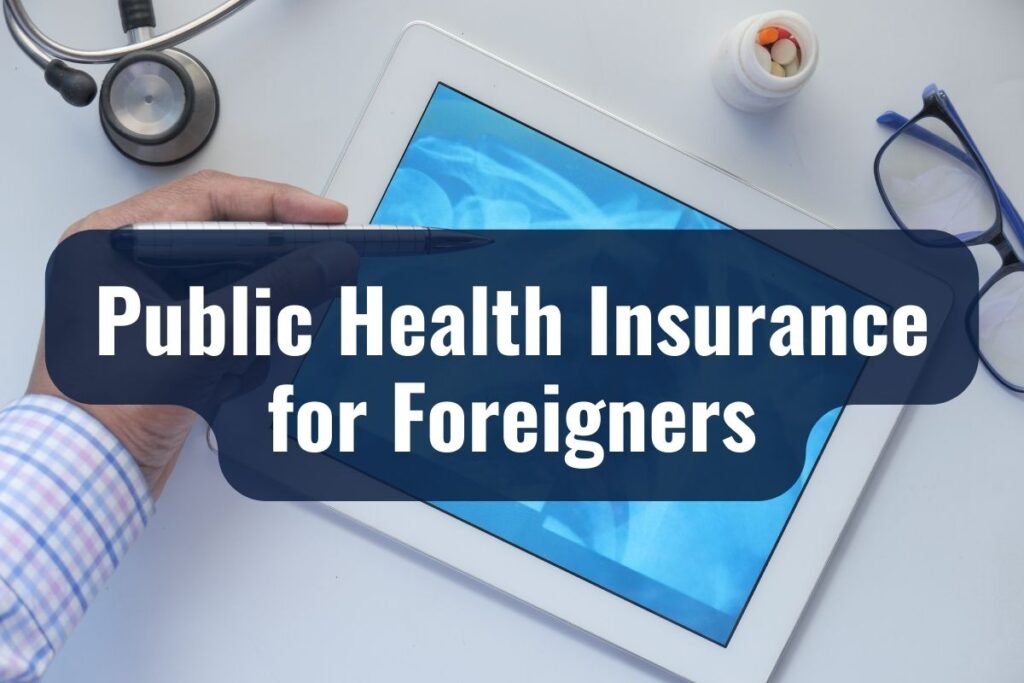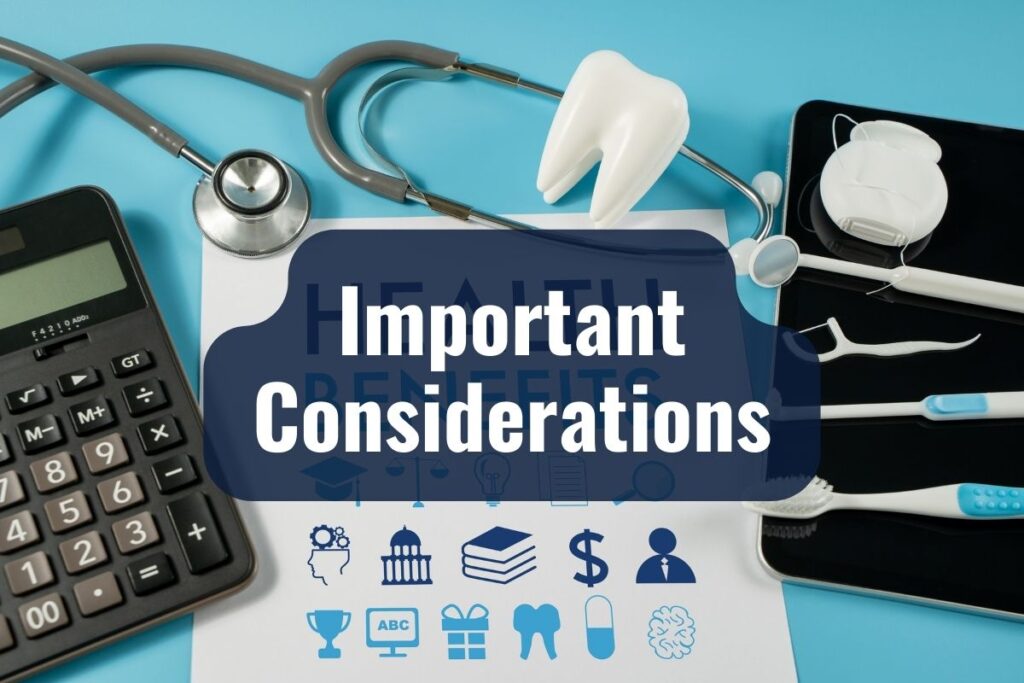Whether you’ve arrived for leisure, work, or to establish roots, ensuring your well-being is paramount. Among the many facets of building a life in a new country, understanding the healthcare system stands out. After all, health and well-being are foundational to any fulfilling experience abroad.
This article aims to illuminate the path for you, offering insights into the Spanish health insurance landscape. From understanding eligibility criteria to recognizing the differences between public and private insurance, we’re here to guide you every step of the way.
KEY TAKEAWAYS
- Spain offers a top-tier healthcare system, accessible to both residents and foreigners.
- The Spanish public healthcare system, the Servicio Andaluz de Salud, provides comprehensive care funded mainly through taxation.
- Foreigners, depending on their origin (EU vs. non-EU), have different eligibility criteria for public health coverage.
- Private health insurance in Spain offers benefits like shorter wait times and English-speaking doctors.
- Students and retirees have specific healthcare considerations and coverage options.
- Language barriers in healthcare can be navigated with bilingual clinics, translation apps, and medical phrasebooks.
The Spanish Healthcare System
Spain prides itself on its robust public healthcare system, known as the Servicio Andaluz de Salud. Widely recognized for its efficiency and quality, this system offers a comprehensive range of medical services.
For foreigners, it’s heartening to note that Spain consistently ranks among the top countries in the world in terms of healthcare quality. This not only speaks of the high standards maintained by medical professionals but also the accessibility and inclusivity of the services offered.
However, as with any system, especially in a foreign land, there are intricacies to navigate. The language can be a barrier, and the procedures may seem unfamiliar.
Spain’s commitment to health is evident in its world-class healthcare infrastructure. A blend of history, innovative practices, and a dedicated workforce ensures that residents, including foreigners, have access to top-notch medical care. Here’s a closer look at the Spanish healthcare system to give you a clearer picture of what to expect.
Servicio Andaluz de Salud: The Heart of Public Healthcare
At the core of Spain’s healthcare framework lies the Servicio Andaluz de Salud, or the Andalusian Health Service. While the name might point towards the region of Andalusia, it serves as a model and reference for the entirety of Spain’s public healthcare. This system operates under the Spanish National Health System (Sistema Nacional de Salud, SNS), ensuring consistency and uniformity in healthcare standards across the country.
The public health service is primarily funded through taxation. This means that a significant portion of medical services are either free at the point of delivery or available at a minimal cost. It’s reassuring to know that the services provided under this banner are exhaustive, ranging from primary care facilities, and specialized treatments, to even emergency services.
Quality and Reputation: A Global Perspective
Spain’s healthcare system isn’t just appreciated domestically; it has earned accolades on the global stage. According to the World Health Organization (WHO), Spain’s healthcare system is among the best in the world. Factors such as low infant mortality rates, high life expectancy, and comprehensive care models contribute to this esteemed reputation.
For foreigners, these recognitions translate to peace of mind. Whether it’s routine check-ups, specialist consultations, or medical emergencies, you’re in skilled and capable hands in Spain.
Regional Variations to Consider
While the overarching principles of healthcare remain consistent, it’s essential to note that healthcare administration is decentralized in Spain. Each of the 17 autonomous communities manages its health services, which can lead to minor variations in procedures and accessibility. While these differences are generally minor, it’s always a good idea to familiarize oneself with regional specifics, ensuring a smooth healthcare experience.
Public Health Insurance for Foreigners

Embarking on life in Spain comes with its set of challenges and learnings, and understanding health insurance is undeniably an essential part of this journey. Thankfully, Spain’s public health insurance system is inclusive, ensuring that foreigners too can benefit from its high-quality medical services.
Eligibility Criteria for Foreigners
The good news is that the Spanish public health system isn’t exclusive to its citizens. Foreigners can, under specific conditions, access the services it offers. Here’s a breakdown of the eligibility based on one’s nationality and status:
EU/EEA/Switzerland Nationals
If you’re a citizen of an EU/EEA country or Switzerland, you’re in luck. Thanks to reciprocal agreements, you are typically entitled to the same healthcare benefits as Spanish nationals.
To avail of these benefits, ensure you have a European Health Insurance Card (EHIC) or a provisional replacement certificate. These documents affirm your rights to healthcare services during your stay in Spain, especially if it’s temporary.
For those planning a longer or permanent stay, registering with the local health authorities and contributing to the social security system will be necessary to maintain uninterrupted health coverage.
Non-EU Nationals
For citizens from non-EU/EEA countries, the process involves a few more steps. Firstly, a valid residence permit is a prerequisite to accessing public health insurance.
Once the residence permit is secured, contributing to the Spanish social security system becomes the next vital step. Regular contributions mean that you and your immediate family can access the range of services offered by the public health system.
It’s also worth noting that certain bilateral agreements between Spain and other countries can simplify this process, so it’s advisable to check if your country has such an arrangement.
How to Register for Public Health Insurance
Begin by obtaining your Foreigner’s Identification Number (Número de Identificación de Extranjero or NIE). This unique number is crucial for any administrative task in Spain, including health insurance.
Once you have your NIE, the next step involves registering on the municipal register at your local town hall (empadronamiento). This registration proves your residence in a particular municipality.
With these documents in hand, head to your nearest Social Security office to register and obtain a Social Security number.
The final step involves registering with a local health center (Centro de Salud) using the aforementioned documents. Upon successful registration, you’ll be issued a health card (tarjeta sanitaria), which grants you access to medical services.
Coverage and Benefits
Being a part of Spain’s public health insurance system means you are privy to a wide array of medical services. From general practitioners, specialists, and hospital care to even some medications, the coverage is comprehensive.
It’s heartening to know that preventive care, treatments for chronic diseases, maternity care, and even surgeries are part of this coverage, ensuring that your health and well-being are always prioritized.
Private Health Insurance: An Alternative

While Spain’s public healthcare system is both comprehensive and highly regarded, there are several reasons why some foreigners might opt for private health insurance. Whether it’s the allure of shorter waiting times, the comfort of English-speaking professionals, or the desire for specific services, private health insurance offers its own set of advantages. Let’s delve into the world of private health insurance in Spain, understanding its nuances, benefits, and considerations.
Why Choose Private Insurance?
For many, the decision to go private stems from a blend of personal preferences and practical reasons:
Shorter Waiting Times
One of the most cited reasons for choosing private health insurance is the reduced waiting times for medical appointments and surgeries. The agility of the private system means faster access to specialists and procedures.
Language Comfort
While many medical professionals in Spain’s public health system do speak English, opting for private insurance often provides a higher likelihood of consistently encountering English-speaking doctors and staff.
Facilities & Comfort
Private hospitals and clinics often resemble the standards of luxury hotels, offering patients a higher level of comfort during their treatments or hospital stays.
Wider Range of Choices
With private insurance, there’s often a broader range of medical professionals and facilities to choose from, allowing individuals to select specialists or hospitals based on their personal preferences.
Coverage Differences Between Public and Private Insurance
While both the public and private health insurance systems in Spain offer comprehensive medical services, there are nuances to consider:
Specialized Treatments: Some specialized treatments or elective surgeries might not be covered under the public system but can be available under private insurance plans.
Dental Coverage: Unlike the public system, many private insurance plans provide extensive dental coverage.
Health & Wellness Services: Private health insurance often encompasses a wider array of health and wellness services, such as physiotherapy, alternative treatments, and health checks.
Process of Buying Private Health Insurance
If you’re considering diving into the private health insurance realm in Spain, here are some key steps to guide you:
Research and Compare
Start by exploring various insurance providers. Spain boasts several reputable insurance companies, each offering a range of plans. Websites and brochures in English are commonly available to aid your research.
Understand the Terms
Ensure you fully grasp the terms and conditions, especially the coverage, exclusions, co-payments, and duration of the policy. Consulting an insurance advisor or broker can be immensely beneficial.
Application & Health Assessment
Once you’ve chosen a provider and plan, you’ll need to fill out an application. Some insurance providers may also require a health assessment or medical history.
Premium Payments
After approval, you’ll be required to pay a premium, either monthly, quarterly, or annually, depending on the plan and provider.
Making Use of the Insurance
Once everything is set, you’ll receive an insurance card, which you can present at private hospitals or clinics when seeking medical care.
Healthcare for Students and Retirees
Whether you’re a young student eager to embrace Spain’s educational brilliance or a retiree seeking a relaxed, sun-soaked lifestyle, ensuring you have the right health coverage is essential. Both students and retirees come with their unique healthcare needs and considerations, and Spain, with its robust healthcare options, ensures that these needs are met seamlessly.
Healthcare for Students
For the thousands of international students who choose Spain as their study destination, health and well-being are paramount. Here’s what students need to know:
| Group | EU/EEA or Switzerland | Non-EU |
| Students | Use EHIC for essential healthcare; consider supplementary private insurance for comprehensive coverage. | Typically require private health insurance for visa or university enrollment. |
| Retirees | Access public healthcare with an S1 form from their home country. | Generally opt for private insurance, considering age and potential pre-existing conditions. |
Coverage Options
European Students: Those from EU/EEA countries or Switzerland should carry their European Health Insurance Card (EHIC). This card ensures that students receive medical care under the same conditions and at the same cost as Spanish nationals. However, it’s worth noting that EHIC covers necessary healthcare services; for comprehensive coverage, supplementary private insurance might be beneficial.
Non-European Students: Students from non-EU countries typically require private health insurance, either as a prerequisite for their visa or university enrollment. Many Spanish insurance companies offer policies tailored specifically for international students, balancing coverage and cost.
Duration and Validity
While the EHIC covers students for the duration of their stay in Spain, private health insurance policies can vary. It’s essential to ensure the policy aligns with the duration of the study program.
Healthcare for Retirees
Spain, with its pleasant climate and serene landscapes, is a popular retirement destination. As retirees contemplate this next phase, health insurance considerations are at the forefront.
Coverage Options
EU Retirees: Retirees from the EU/EEA or Switzerland who receive a pension from their home country can typically access Spain’s public healthcare system. To do so, retirees need to obtain an S1 form from their home country, which allows them to register with the Spanish health system.
Non-EU Retirees: Those from non-EU countries will generally opt for private health insurance. Given the age factor and potential pre-existing conditions, it’s advisable to carefully review policies and ensure comprehensive coverage.
Pre-existing Conditions
For retirees considering private health insurance, it’s crucial to declare any pre-existing conditions. While some insurers may offer coverage with a higher premium, others might exclude specific conditions. Thorough research and consultation can help find the best fit.

Spain offers an enriching experience for all who visit or settle there. However, the beauty of the Spanish language can sometimes pose challenges, especially when it comes to essential matters like healthcare.
The thought of discussing medical issues or understanding intricate health-related details in a foreign tongue can be daunting. However, with a bit of preparation and the right resources, these hurdles can be effortlessly overcome, ensuring clear communication and peace of mind.
The Importance of English-Speaking Doctors
While many professionals in Spain’s healthcare system are multilingual, having access to English-speaking doctors can provide immense reassurance. Here’s why:
Clear Communication
Health concerns require precise and unambiguous communication. An English-speaking doctor ensures that your medical history, symptoms, and concerns are fully understood, leading to accurate diagnoses and treatments.
Complex Matters
For intricate medical procedures or when discussing specialized treatments, being able to communicate in one’s native language (or a language one is fluent in) can alleviate anxiety and confusion.
Tips to Ensure Effective Communication
Navigating the language barrier in healthcare settings can be made smoother with a few strategies:
Seek Out Bilingual Clinics
Many cities in Spain, especially those with a significant expatriate population, have clinics and hospitals catering specifically to foreign residents. These facilities often employ English-speaking staff and provide bilingual documents.
Use Medical Translation Apps
With technological advancements, several apps now offer medical translation services. These apps, designed specifically for health-related conversations, can be a valuable tool during doctor visits.
Carry a Medical Phrasebook
While digital resources are handy, a physical medical phrasebook can be equally beneficial. These phrasebooks, tailored for healthcare settings, provide translations for common medical terms and can be a quick reference during consultations.
Consider Hiring a Translator
For specialized medical procedures or complex health issues, considering a professional medical translator might be worthwhile. They can ensure that every detail is clearly understood, leaving no room for misunderstanding.
Useful Apps and Resources for Medical Translations
MedicWords: A specialized app that translates a wide range of medical terms and phrases between English and Spanish, making consultations more accessible.
Google Translate: While it’s a general translation app, the conversation feature can be instrumental during doctor visits. It allows for real-time translation of spoken words.
Local Expat Communities: Engaging with local expatriate communities can be beneficial. Members often share recommendations for English-speaking doctors or clinics based on their personal experiences.
Practical Steps to Take When Needing Medical Attention
Seeking medical attention in a foreign country can evoke a mix of emotions: urgency, anxiety, and uncertainty. While Spain offers one of the finest healthcare systems globally, it’s entirely natural to feel overwhelmed, especially if you’re not well-acquainted with the process. Here’s a structured guide to help you navigate those moments, ensuring that you receive timely and appropriate care with the least amount of stress.
1. Assessing the Situation
Before anything else, gauge the severity of the medical issue:
Emergencies: In the event of a life-threatening situation or severe injury, call the emergency services immediately. In Spain, the number to dial is 112. Operators at 112 typically speak multiple languages, including English, ensuring efficient communication.
Non-Emergencies: If the situation isn’t urgent but requires medical attention, consider visiting a local health center (Centro de Salud) or making an appointment with a general practitioner.
2. Choosing a Healthcare Provider
Public Health Centers: If you’re registered with the public health system, visit your nearest Centro de Salud. Carry your health card (tarjeta sanitaria) for smoother service.
Private Clinics: For those with private health insurance or preferring private care, reach out to your insurance provider’s helpline or consult their directory for approved healthcare providers in your vicinity.
Pharmacies: For minor ailments or advice on over-the-counter remedies, pharmacists in Spain are well-trained and can provide guidance. Look for establishments with a green cross sign.
3. Setting Up Appointments
Via Phone: Most clinics and doctors offer appointment bookings over the phone. While many receptionists may speak English, having basic Spanish phrases at hand can be helpful.
Online Platforms: Several healthcare providers offer online booking systems. This can be particularly useful, as you can often choose the language of the platform, making the process more straightforward.
In-Person: Especially in public health centers, it’s possible to walk in and book an appointment for a later date.
4. Preparing for the Visit
Documentation: Ensure you carry relevant documents such as your health card (for public healthcare), private insurance card, and any previous medical records or prescriptions that might be pertinent.
Translation Tools: If you’re concerned about potential language barriers, consider having a medical translation app or phrasebook handy.
5. Understanding the Process
Waiting Time: Depending on the urgency and the nature of the facility, there might be some waiting time. It’s always a good idea to arrive a little earlier than your scheduled appointment.
Consultation: Discuss your symptoms and concerns clearly with the doctor. Don’t hesitate to ask questions or seek clarification.
Prescriptions & Medications: If the doctor prescribes medication, they’ll provide a prescription that can be filled out at local pharmacies. Note that some medications might be subsidized under the public healthcare system.
6. After the Visit
Follow-Up: Ensure you understand any follow-up instructions, whether it’s another appointment, tests, or specific care guidelines.
Payment: If you’re using private healthcare services, you might need to make a payment after the consultation. Some clinics also offer direct billing options with insurance providers.
Important Considerations

While the Spanish healthcare system is undeniably comprehensive and accommodating, like any system, there are nuances to keep in mind. Being informed about these subtleties ensures that your journey through healthcare in Spain is smooth and hassle-free. Here are some important considerations to bear in mind as you navigate health insurance and medical services in this vibrant nation.
1. Renewal Process and Considerations
Public Health Insurance: If you’re on public health insurance, your health card (tarjeta sanitaria) will have an expiration date. Ensure you’re aware of this and begin the renewal process well in advance to avoid any lapse in coverage.
Private Health Insurance: Private policies typically have an annual renewal. You may receive a notification from your provider about any changes in terms or premium amounts. It’s a good time to reassess your needs and ensure the policy still aligns with them.
2. Switching Between Public and Private
While Spain offers the flexibility to choose between public and private health insurance, there are a few things to keep in mind:
Transition Timing: If you’re considering switching from private to public or vice versa, ensure there’s no gap in coverage. Coordinate the start date of one policy with the end date of the other.
Coverage Differences: Before making the switch, compare the services offered under each system. Some specialized treatments available in private policies might not be covered under public insurance, and vice versa.
3. Regional Differences in Healthcare Services
Spain’s decentralized approach means healthcare administration falls under the jurisdiction of its 17 autonomous communities. While the foundational principles remain consistent:
Variation in Services: Some regions might offer additional services or have specific health programs. It’s beneficial to familiarize oneself with regional healthcare services.
Language: In regions with a strong secondary language (like Catalan in Catalonia or Basque in the Basque Country), some medical documentation might be in the regional language. However, translations in Spanish and often English are usually available.
4. Continual Updates on Bilateral Agreements
Spain has bilateral agreements with several countries, ensuring that citizens from these nations enjoy specific healthcare benefits. These agreements can change:
Stay Updated: If you’re from a country with a bilateral agreement, keep yourself updated on any changes or revisions to the agreement that might affect your health coverage.
5. Emergency Services are Universal
Regardless of your insurance status, in emergencies, you are entitled to care in Spain. Public hospitals will not deny emergency treatment to anyone, even if they are not registered with the public health system.


